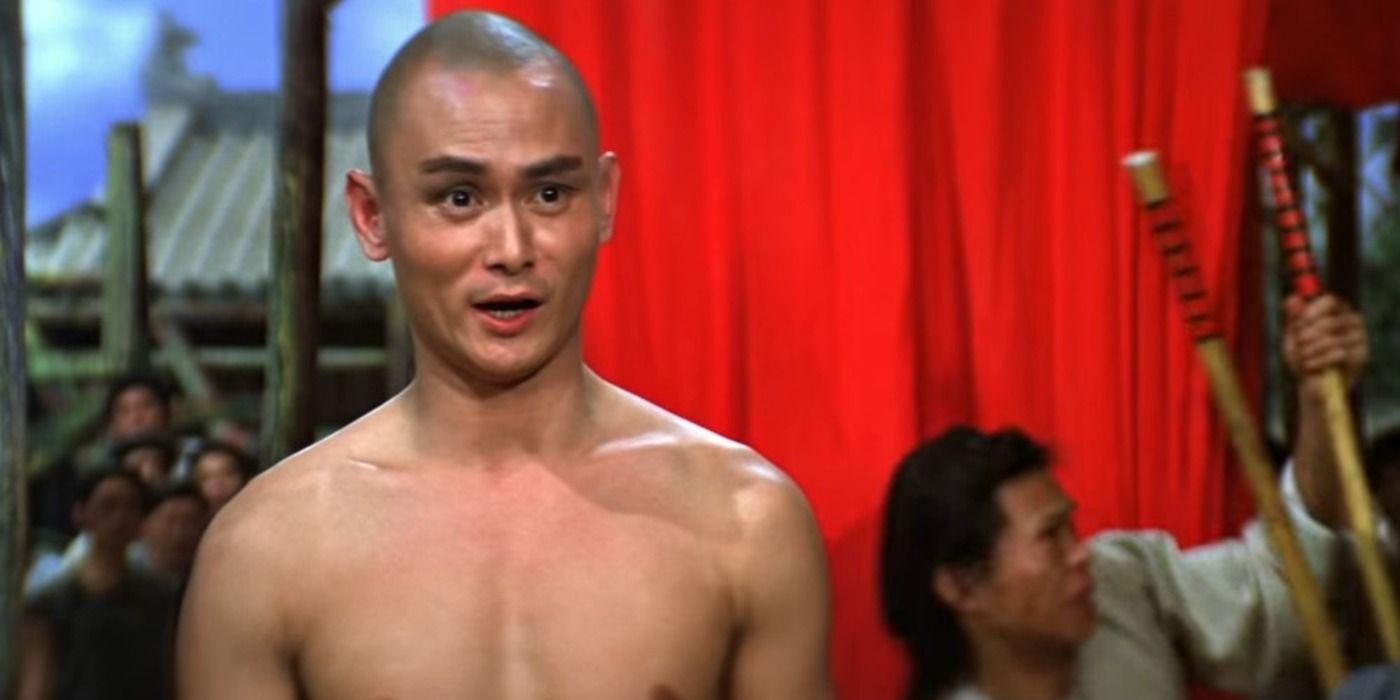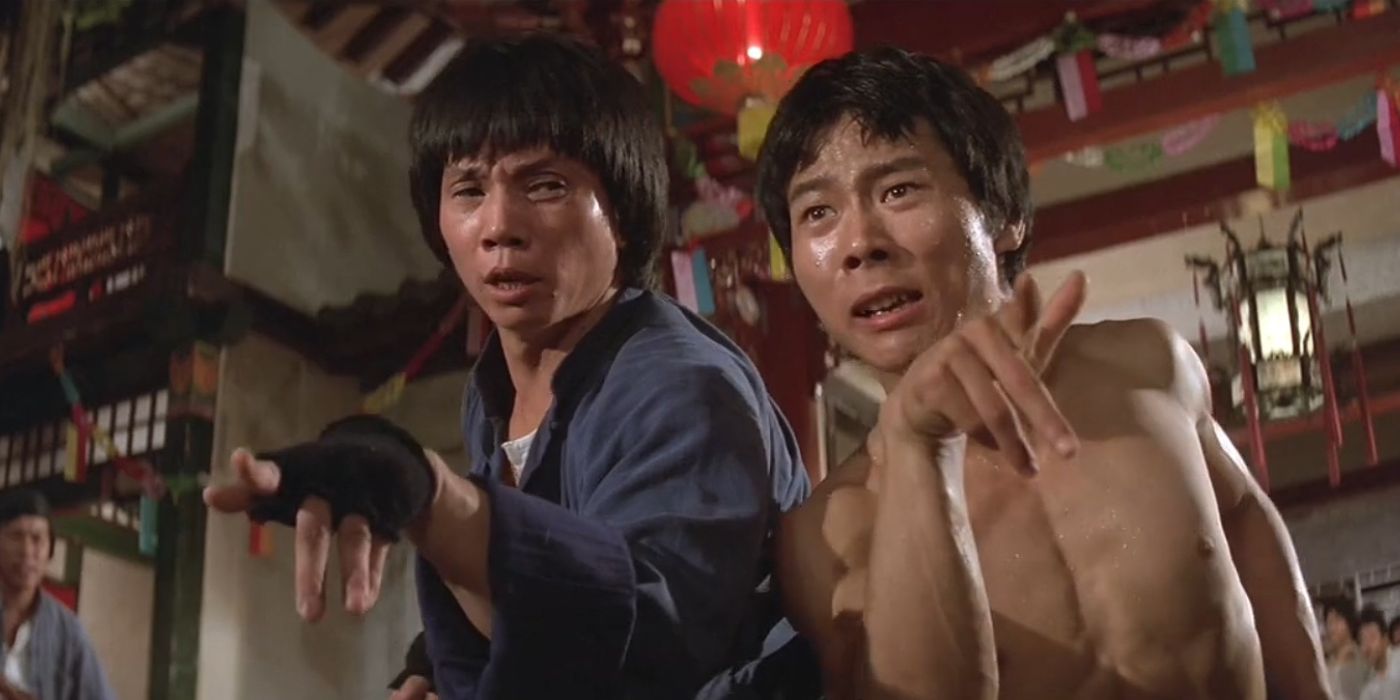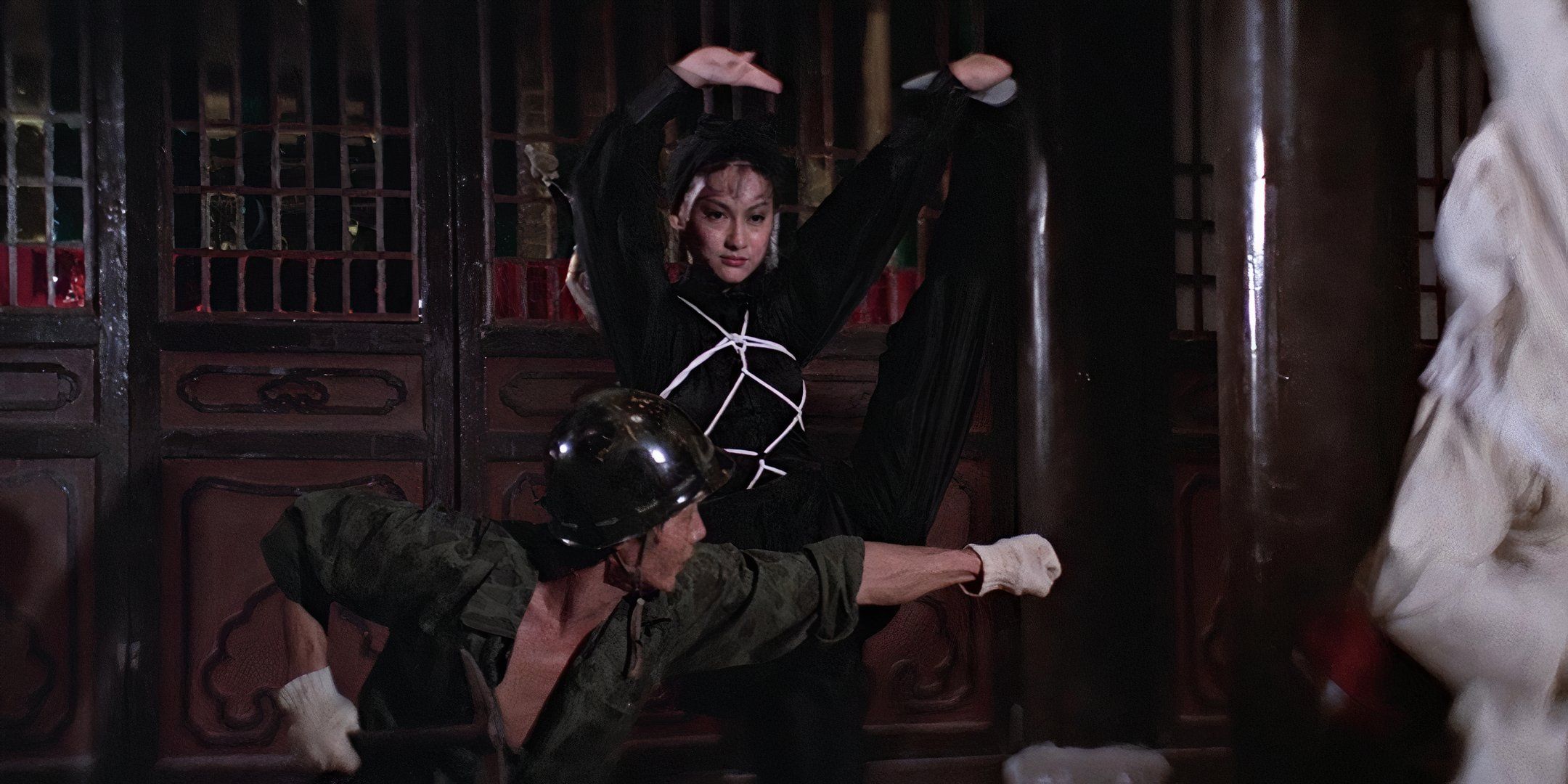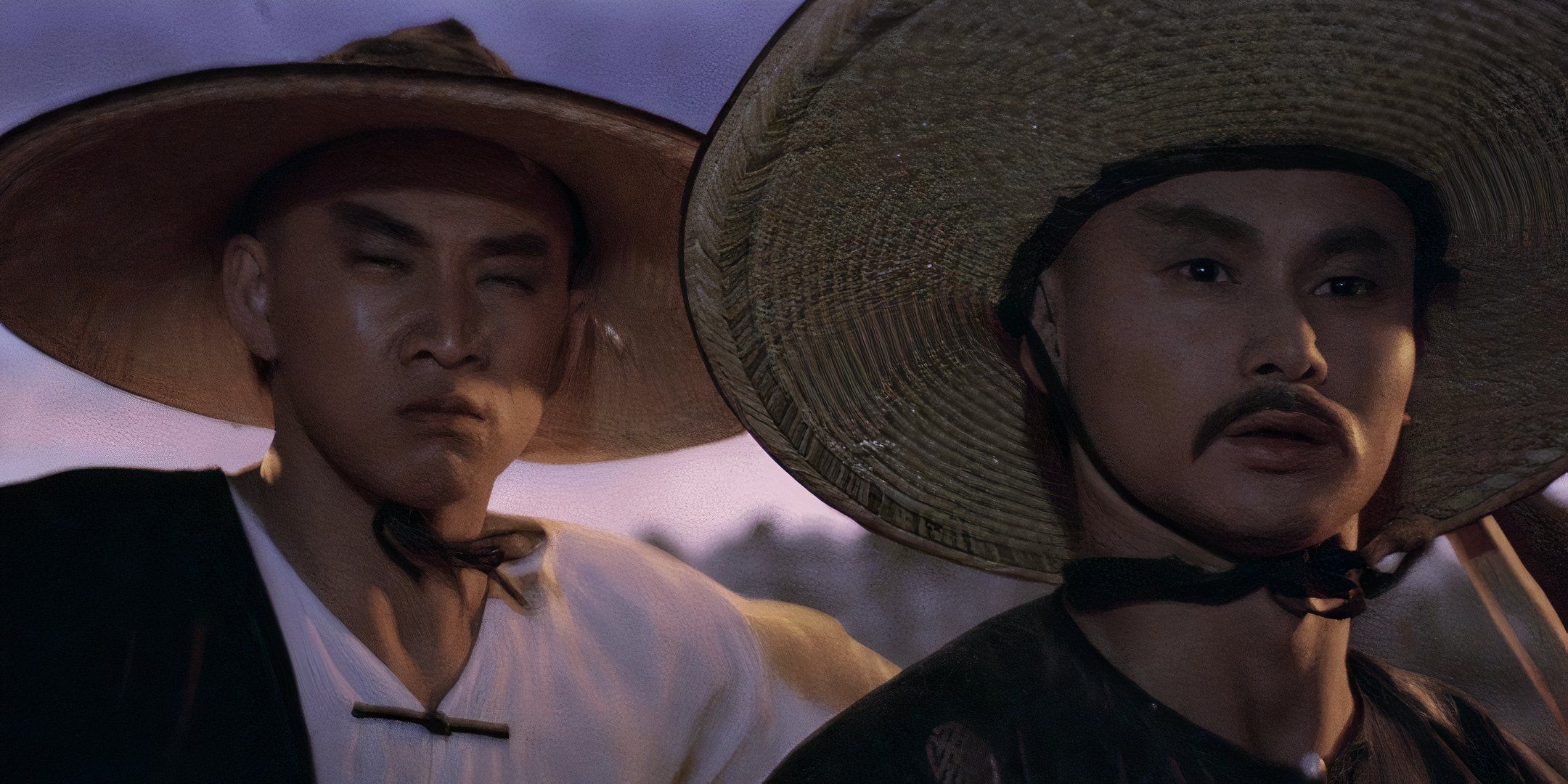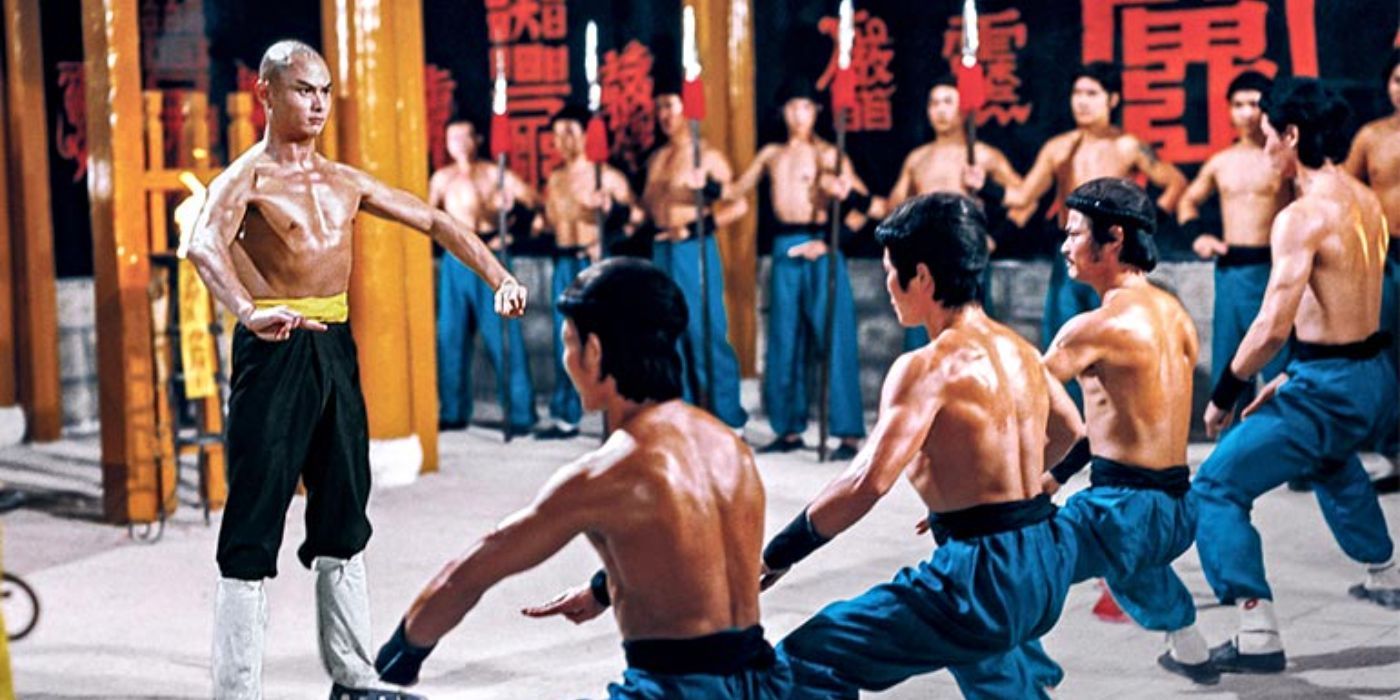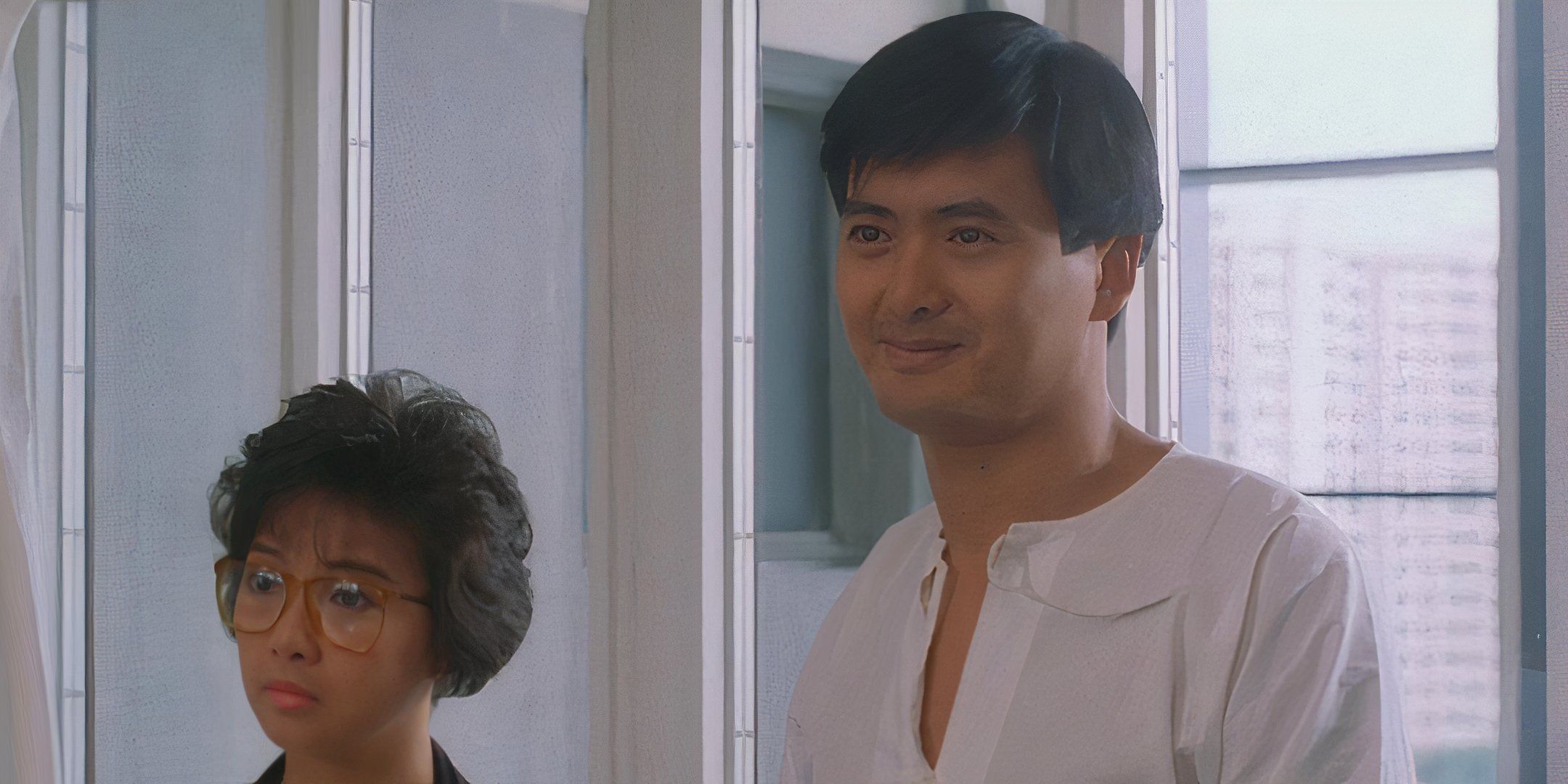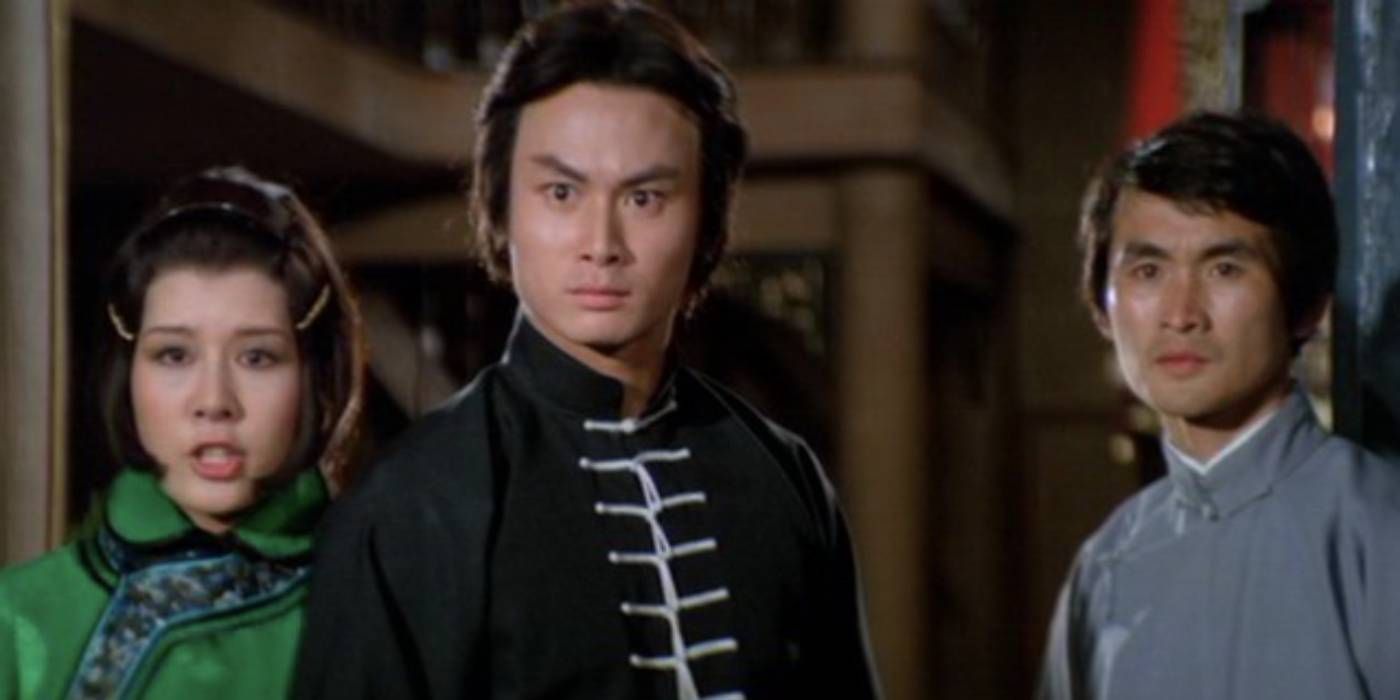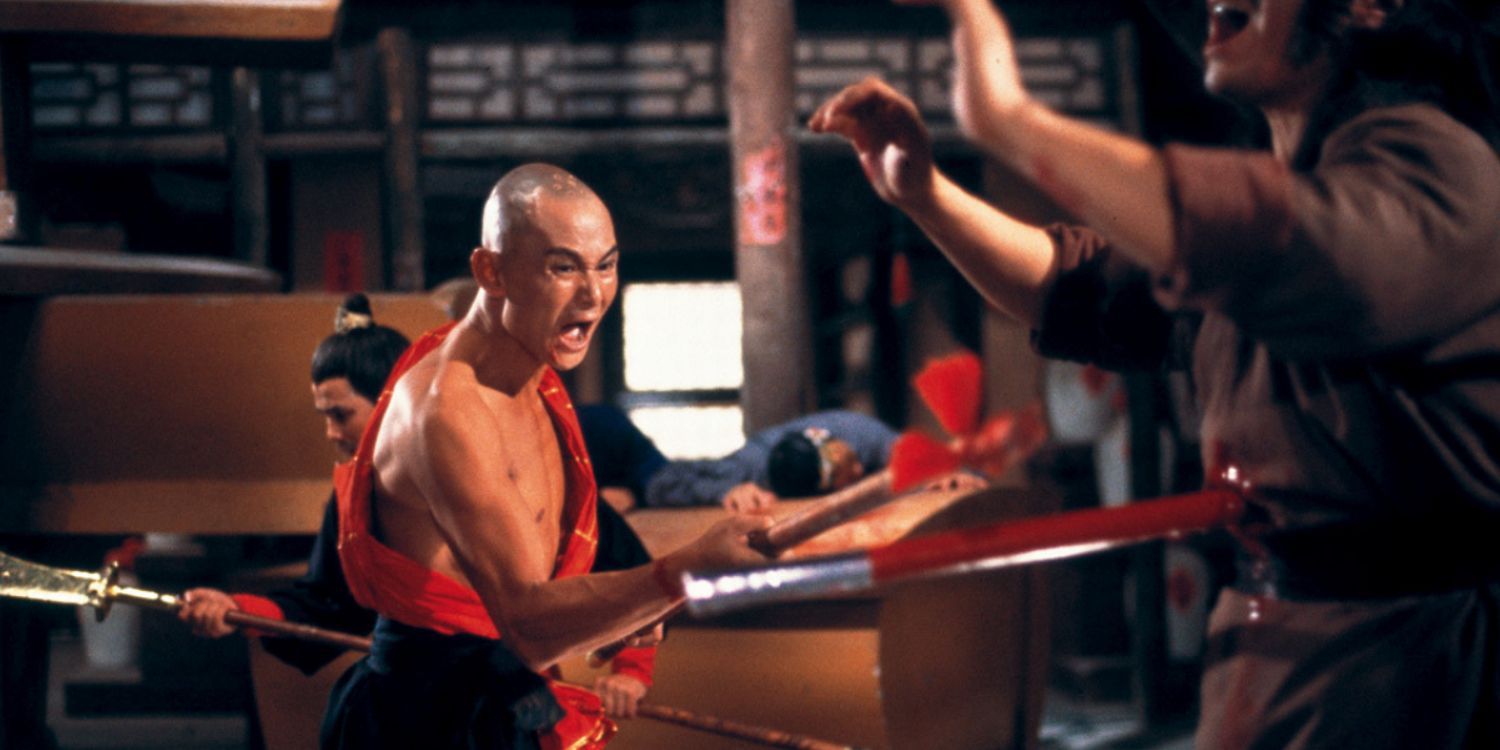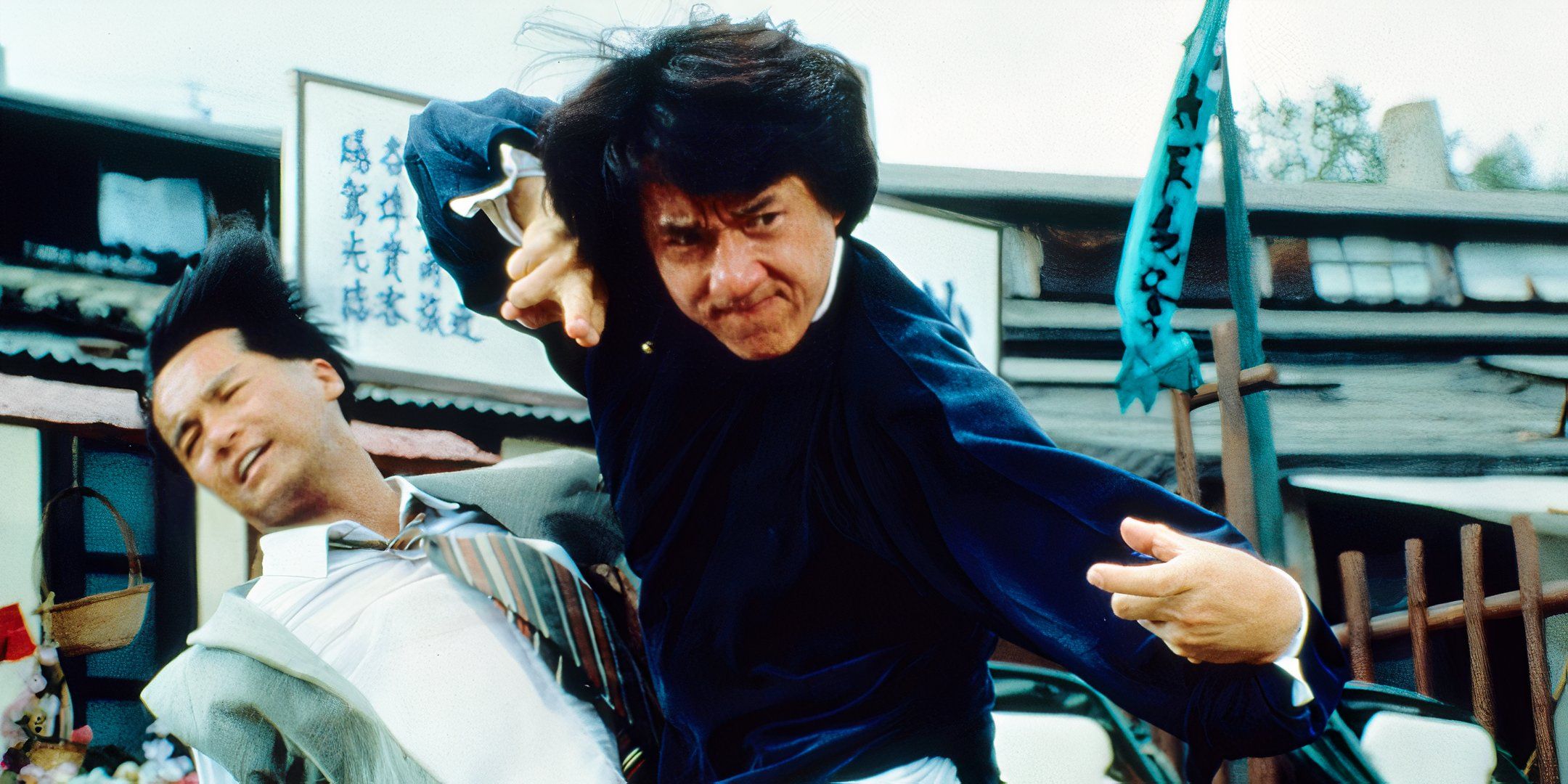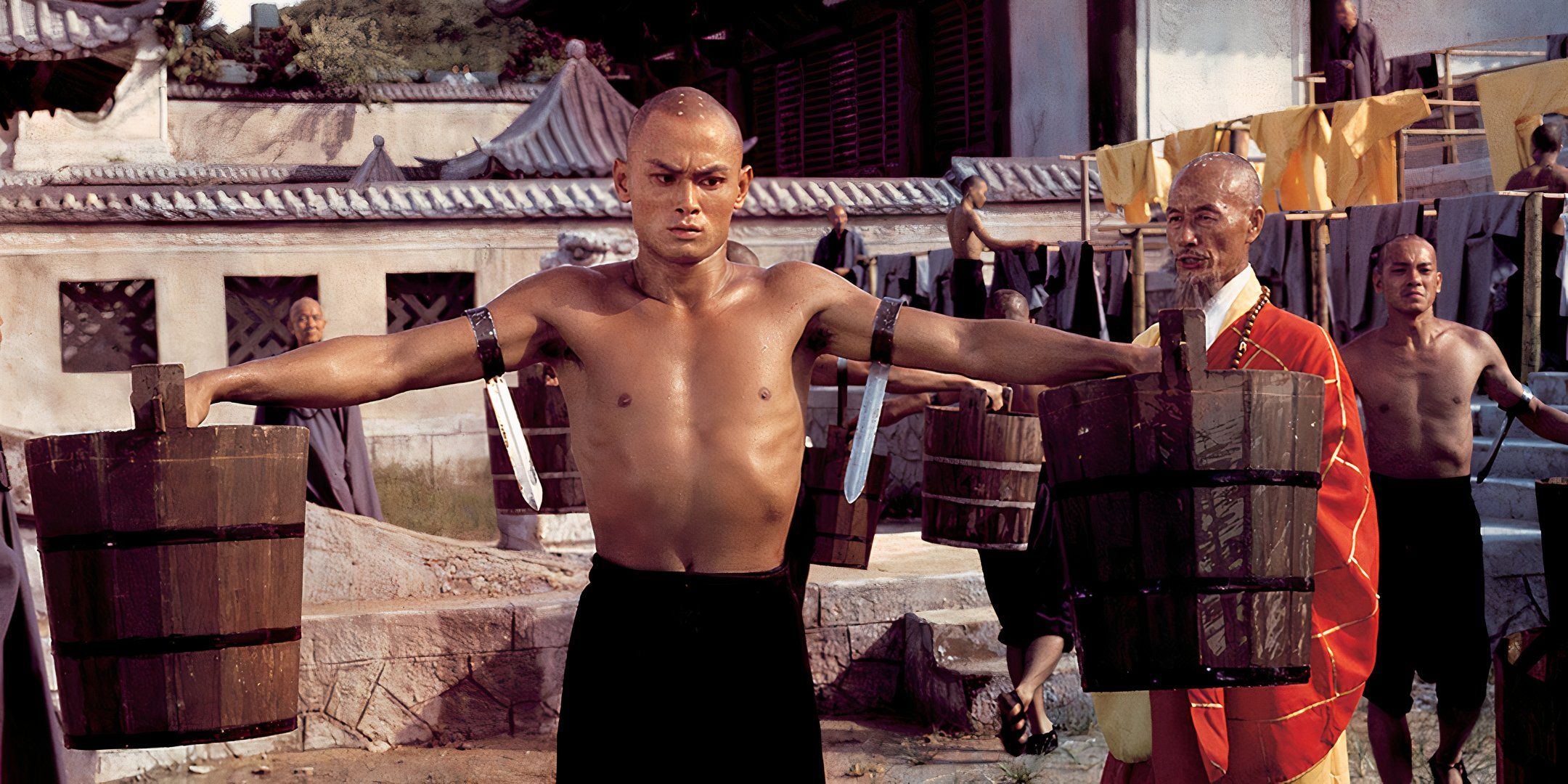Starting as a fight choreographer, martial artist and actor Lau Kar-leung would go on to become well-known and celebrated for his directorial achievements. Lau is seen as one of the best martial arts directors of all time, for his contribution to the genre encouraged other directors to portray a range of martial arts styles in their films with authenticity and attention to detail. Lau, having first been taught kung fu as a young boy, has created some iconic fight sequences in martial arts films, namely those produced by the Shaw Brothers, including The One-Armed Swordsman.
Though many of Lau’s best-known martial arts films have intense narratives, like The Eight Diagram Pole Fighter and The 36th Chamber of Shaolin, the director also dabbled quite a bit in martial arts comedies as well. A wearer of many hats, Lau’s talent is evident in his choreography, acting, and writing, but it’s his directorial efforts that see these abilities fuse to create memorable and, in many cases, influential pieces of work.
10
Return To The 36th Chamber (1980)
Puts A Comedic Spin On The Events From Lau’s First 36th Chamber Film
Lau’s film The 36th Chamber of Shaolin is seen as one of the best martial arts movies of all time, and while the loosely connected sequel films may not have been as positively received, they are still undeniably fun and ambitious. The second film in the trilogy is Return to the 36th Chamber, which stars Gordon Liu, Kara Hui, and Hsiao Ho. Unlike the first film, Return to the 36th Chamber is much more comedic.
Liu’s role in the second film differs slightly from the first, where he played Shaolin monk San Te. This time, Return to the 36th Chamber sees Liu as a young man who poses as San Te to help factory workers. Liu’s character then goes on a journey to become a kung fu master at a Shaolin temple. The story doesn’t differ too much from its predecessor, but the comedic twist can be greatly appreciated for its entertainment value.
9
Mad Monkey Kung Fu (1979)
A Kung Fu Student & His Teacher Get Revenge
There have been a few films throughout Lau’s career that he’s both directed and starred in, with Mad Monkey Kung Fu being one of them. Rounding out Lau’s impressive run in the ’70s, Mad Monkey Kung Fu follows a retired kung fu master’s path toward revenge. After being brought down and shamed by a local gangster, Chen (Lau) is working as a street performer when he comes across a young boy nicknamed Monkey (Hsiao Hou), who’d soon become his protégé.
Mad Monkey Kung Fu has a standard story seen in several martial arts films, following a revenge plot and depicting the significant relationship between a teacher and his student. Therefore, what truly sets the film apart from other kung fu movies is the action sequences. The film includes the titular martial arts style, which is delicately choreographed and highly entertaining to watch. As a stunt performer, action choreographer, and frequent collaborator of Lau’s, Hsiao Hou is more than capable of keeping up with his co-star throughout the film.
8
My Young Auntie (1981)
An Unexpected Duo Fights To Earn Back Stolen Inheritance
Many of Lau’s best kung fu movies featured familiar faces, one of which is that of Kara Hui. In fact, the actor’s earliest film appearance was in Lau’s Challenge of the Masters, and Hui would continue to pop up in the director’s films in the following years. In My Young Auntie, Hui plays the titular character, a martial arts champion named Cheng Tai-nun, who, following the death of her elderly husband, moves in with her older nephew (Lau Kar Leung) and his son, Yu Tao (Hsiao Ho).
The action movie sees Tai-nun and Tao fighting off those who stole the former’s inheritance. Compared to most of Lau’s films, My Young Auntie is much more comedic, which its cast handles well. The choreography is silly but convincing in its technicality. For her performance in the film, Hui won Best Actress at the Hong Kong Film Awards.
7
Dirty Ho (1979)
Fearful Of Being Assassinated, A Prince Appoints A Thief To Protect Him
Merging comedy with martial arts is the late ’70s film Dirty Ho. The kung fu film stars Gordon Liu and Wong Yue as a prince and jewel thief, respectively, who team up to protect the former from a mystery assassin hoping to take his throne. Of Lau’s martial arts comedy films, Dirty Ho is among the best. It’s not an easy task to pull off comedic action movies, as the silliness of the film can quickly become cheesy.
However, Lau and Dirty Ho‘s cast do a great job at finding the ideal balance. Both the slapstick humor and the well-choreographed action are at a consistent high throughout the film, with neither element overpowering the other. Dirty Ho is unapologetically loud with its comedic tone and lavish sets, making it easy to secure audiences’ attention. Liu and Wong, too, who were frequent co-stars throughout their careers, are a well-paired match on-screen and act as the ideal counterparts to the film’s delightfully villainous antagonists.
6
Legendary Weapons Of China (1982)
A Historical Wuxia Film Full Of Action
Though he’s most celebrated for his directing and choreographing efforts, Lau also wrote a handful of screenplays throughout his career. Many of these screenplays were for films he directed, including Legendary Weapons of China. Set during the Qing Dynasty, Empress Dowager Cixi sends a group of assassins to find supernatural martial artists who are invincible to bullets. When one member appears to be a traitor, the remaining assassins go after him.
Admittedly, Legendary Weapons of China does open with a confusing story, overstuffed with too many characters and details to keep track of. However, once the film’s action begins, it’s clear that’s what makes Legendary Weapons of China worthwhile and one of Lau’s best films. As expected from Lau, the ’80s martial arts fantasy film is full of eye-catching action sequences that interweave innovative means of magic with traditional kung fu choreography.
5
Tiger On The Beat (1988)
A Buddy Cop Film Inspired By Lethal Weapon
Inspired by the style of one of the ’80s best buddy cop movies, Lethal Weapon, Lau’s Tiger on the Beat pairs Chow Yun-fat and Conan Lee as the mismatched duo. Though the film’s simple story has been told several times before and since its 1988 release, it differs greatly from the movies Lau is best known for. Additionally, the film’s leading performances set it apart from others in the buddy cop genre.
In the film, a veteran police officer (Chow) and his rookie partner (Lee) investigate the murder of a famous drug trafficker. During their investigation, the pair find themselves wrapped up in the world of organized crime. As expected of great buddy cop movies, the comedic chemistry between Chow and Lee is palpable. As an action film, Tiger on the Beat also features some compelling bouts of conflict, with a particularly memorable scene involving a chainsaw.
4
Heroes Of The East (1978)
A Married Couple Fight Off Several Skilled Martial Artists
Gordon Liu leads Lau’s Heroes of the East, in which the director also has a small part in the film. Differing from many kung fu movies at the time, Heroes of the East features a mix of traditional kung fu seen throughout Hong Kong cinema, as well as Japanese martial arts. The inclusion of Japanese martial arts styles and characters was executed with a great amount of respect, minimizing the threat of the film’s antagonist characters.
In Heroes of the East, Liu plays a Chinese martial artist who marries a Japanese martial arts fighter (Yuka Mizuno). The relationship is filled with a bit of tension as each partner insists their style of martial arts is superior. Following a grave misunderstanding, Liu’s character must fight off several Japanese fighters, each a master of a different style. While there is plenty of substance within the film, there are very few stakes within its narrative, allowing Lau to take full advantage of its diverse and fun display of martial arts.
3
The Eight Diagram Pole Fighter (1984)
Two Brothers Grapple With The Loss Of Their Family
Featuring powerful performances by Alexander Fu Sheng, Gordon Liu, and Kara Hui, among others, The Eight Diagram Pole Fighter is a dark yet incredibly moving martial arts film. The movie is based on a collection of stories known as The Generals of the Yang Family. In the film, the Yang family is ambushed, resulting in the heartbreaking deaths of all the men except for the fifth (Liu) and sixth (Fu Sheng) sons.
The emotional weight such a tragedy has on the remaining brothers is apparent throughout the film and is effectively captured in Liu and Fu Sheng’s performances. The emotional trauma in the film acts as the leading motivator for Liu’s character to get revenge. The titular fighting technique proves to be quite useful in the character’s final confrontations, which are among the most brutal in Lau’s filmography. The final moments of action in The Eight Diagram Pole Fighter are gruesome and shocking and are likely to stick with audiences for quite some time.
2
Drunken Master II (1994)
A Sequel To Jackie Chan’s Influential Martial Arts Comedy
A follow-up to the Yuen Woo-ping-directed film Drunken Master, Drunken Master II is arguably one of Jackie Chan’s most important movies. Just like its predecessor, Drunken Master II blends comedy with kung fu and boasts some of Chan’s more daring stunts. The film sees the actor returning as the famous Chinese martial artist Wong Fei-hung. In the sequel, Wong uses a drunken boxing style to defeat foreigners who try to export precious Chinese artifacts.
A decade before the release of the film, Chan hadn’t appeared in a traditional kung fu movie. While that may be the best way to categorize Drunken Master II, the film still features several trademarks of Chan’s most celebrated work, including an admirable amount of physical comedy and remarkable stunt work. Lau played a big part in creating Drunken Master II‘s iconic fight scenes as he provided the choreography for the film and had a supporting acting role as well. For his contributions, Lau won the award for Best Action Choreography at the Hong Kong Film Awards and the Golden Horse Awards.
1
The 36th Chamber Of Shaolin (1978)
A Film That Further Advanced Lau’s Career
Early on in his career as a director, Lau teamed up with the Shaw Brothers and Gordon Liu to make The 36th Chamber of Shaolin. The movie is considered to be the best film about Shaolin monks and one of the best kung fu films ever. The 36th Chamber of Shaolin tells the story of how San Te (Liu) rose above hardships, rebelled against the oppressive Manchu government, and established the titular chamber to teach ordinary people kung fu.
The 36th Chamber of Shaolin has its moments of action, but the film is more concerned with telling an engaging origin story, albeit one that’s embellished. Despite having a slightly slower pace and relishing every step of San Te’s training, Liu’s captivating lead performance and Lau’s direction ensure audiences are never bored. The success of The 36th Chamber of Shaolin propelled Lau and his cast to greater levels of fame, signifying early on that the director’s influence on filmmaking and martial arts was far from fleeting.

